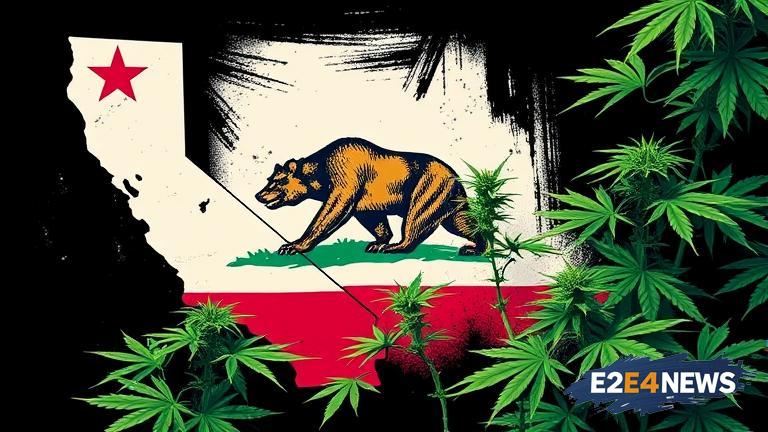The California cannabis industry was initially hopeful that the Trump administration would be an ally, given the president’s comments on the campaign trail suggesting that he would leave marijuana legalization to the states. However, those hopes were quickly dashed as the administration launched a series of raids on dispensaries and growers across the state. The raids, which began in 2017, have left many in the industry feeling uncertain and fearful about their future. Despite the fact that California voters approved Proposition 64, which legalized recreational marijuana, the federal government continues to classify cannabis as a Schedule I controlled substance. This has created a confusing and often contradictory regulatory environment, with state and local authorities attempting to navigate the complexities of federal law. The raids have also had a disproportionate impact on small and minority-owned businesses, which are often less equipped to deal with the financial and legal burdens of a federal crackdown. Many of these businesses have been forced to shut down or operate in the shadows, further exacerbating the already significant disparities in the industry. The Trump administration’s actions have also had a chilling effect on investment and innovation in the industry, as many potential investors and entrepreneurs are hesitant to get involved in a sector that is still subject to federal prosecution. Meanwhile, other states that have legalized marijuana are watching the situation in California closely, wondering if they will be next on the list for federal enforcement. The situation has sparked a heated debate about the role of the federal government in regulating marijuana, with some arguing that it is time for the feds to get out of the way and allow states to set their own policies. Others argue that the federal government has a responsibility to enforce its laws, even if they are at odds with state policies. As the situation continues to unfold, one thing is clear: the California cannabis industry is facing a period of significant uncertainty and upheaval. The future of the industry remains unclear, and it is likely that the situation will continue to evolve in the coming months and years. In the meantime, many in the industry are holding their breath, waiting to see what the Trump administration will do next. The raids have also raised questions about the use of federal resources, with some arguing that the government should be focusing on more pressing issues, such as the opioid epidemic. The impact of the raids on the industry has been significant, with many businesses reporting losses and layoffs. The situation has also sparked concerns about public safety, as many patients who rely on cannabis for medical purposes are being forced to turn to the black market. The California cannabis industry is a significant contributor to the state’s economy, generating billions of dollars in revenue each year. The industry is also a major employer, with thousands of people working in cannabis-related jobs. Despite the challenges it is facing, the industry remains optimistic about its future, with many predicting that it will continue to grow and thrive in the years to come.
